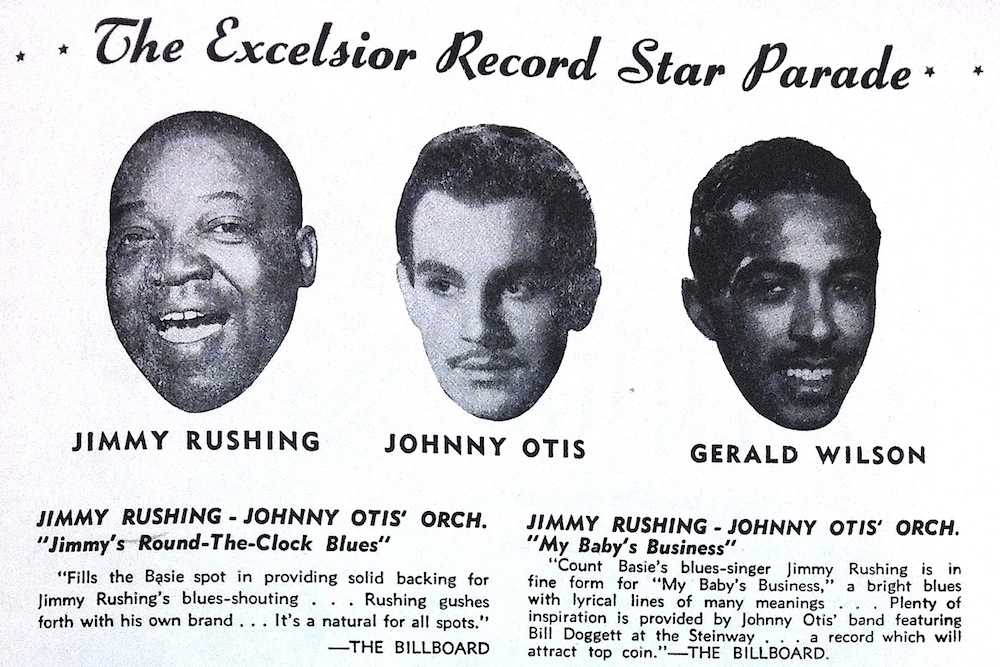The Greek-American R&B Legend Who Passed as BlackPosted in Articles, Arts, Biography, History, Media Archive, Passing, United States on 2019-09-22 02:49Z by Steven |
The Greek-American R&B Legend Who Passed as Black
Zócalo Public Square
2018-12-17
Kristen E. Broady, Dean and Professor of Economics
College of Business
Dillard University, New Orleans, Louisiana
 An Excelsior Records advertisement features R&B pioneer Johnny Otis between blues singer Jimmy Rushing and bandleader Gerald Wilson. Courtesy of Flickr. |
Johnny Otis Felt He Had Been ‘Saved’ by the Political, Spiritual, and Moral Force of African-American Culture
If a role exists in black music that Johnny Otis couldn’t play, it would be hard to find. Known as the godfather of rhythm and blues, Otis was a bandleader, talent scout, singer, drummer, minister, journalist, and television show host. Between 1950 and 1952, Johnny and his band recorded 15 top 40 R&B blues hits. He discovered, produced and promoted a roster of stars, including Etta James, Little Esther, and Jackie Wilson.
Otis was not only a trailblazer in the world of music but also a religious leader and political activist. Born seven months after the beginning of the 1921 Tulsa Race Riot, he lived through Supreme Court decisions that decriminalized interracial marriage, barred racial gerrymandering of political districts, and ended covenants barring black Americans from owning property. He witnessed the inauguration of the nation’s first African-American president and was a friend of Malcolm X and an enemy of racial oppression. Yet Johnny Otis, arguably one of the most important figures in mid-century black music in America, was not actually black. He was white, passing as black…
Read the entire article here.
